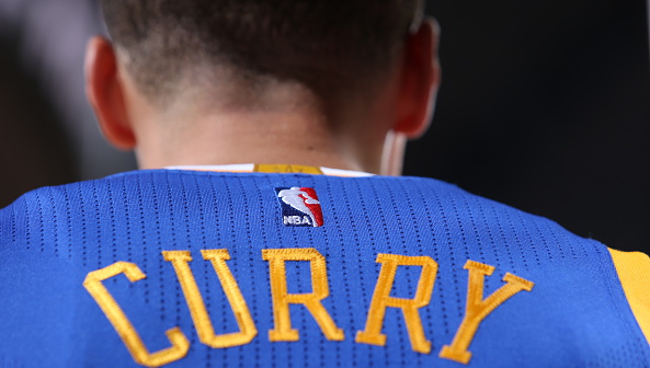
It’s been said that our greatest fears lie in anticipation. I, for one, am afraid of something far more insidious, i.e. the fact that our complacency and passivity has allowed what was once the object of our collective dread to slowly and incrementally become the current reality. You wake up one day, and all of the sudden, you’re living inside that future dystopia that once seemed so unimaginable. I’m talking, of course, about ads on NBA jerseys.
Earlier this year, the NBA Board of Governors voted, with little-to-no fanfare, to approve ads on jerseys, beginning in the 2017-2018 season. Soon after, the Philadelphia 76ers became the first of the four major North American sports teams to sell advertising real estate on their jerseys when they announced a deal with StubHub back in May.
Now, it appears the Golden State Warriors are not only looking to follow suit; they want to cash in big time. According to Darren Rovell of ESPN.com, the organization is hoping to earn $15 million to $20 million per year for the privilege of displaying a company logo on their unis:
It is believed that the Warriors, who won the NBA title in 2015 but lost in the Finals to the Cleveland Cavaliers in seven games this year, are asking for more money than any other team.
The NBA recently approved a three-year pilot program to allow teams to sell 2½-inch by 2½-inch patches on the upper left of jerseys, opposite what will be a swoosh from Nike, which will begin its deal as the league’s official apparel-maker after the 2016-17 season.
That hefty price tag is no doubt directly related to them landing prized free agent Kevin Durant in free agency this summer. But there are other considerations as well. The market size for individual teams, and by proxy their national television exposure, will certainly affect how much companies will be willing to pay. It also bears mentioning that half of the money generated will go to the players themselves via the revenue-sharing pool, as outlined in the league’s collective bargaining agreement.
It’s no surprise that the only losers in this scenario are the fans, who are already inundated with a never-ending tidal wave of corporate advertising in almost every facet of the viewing experience.
(ESPN.com)






